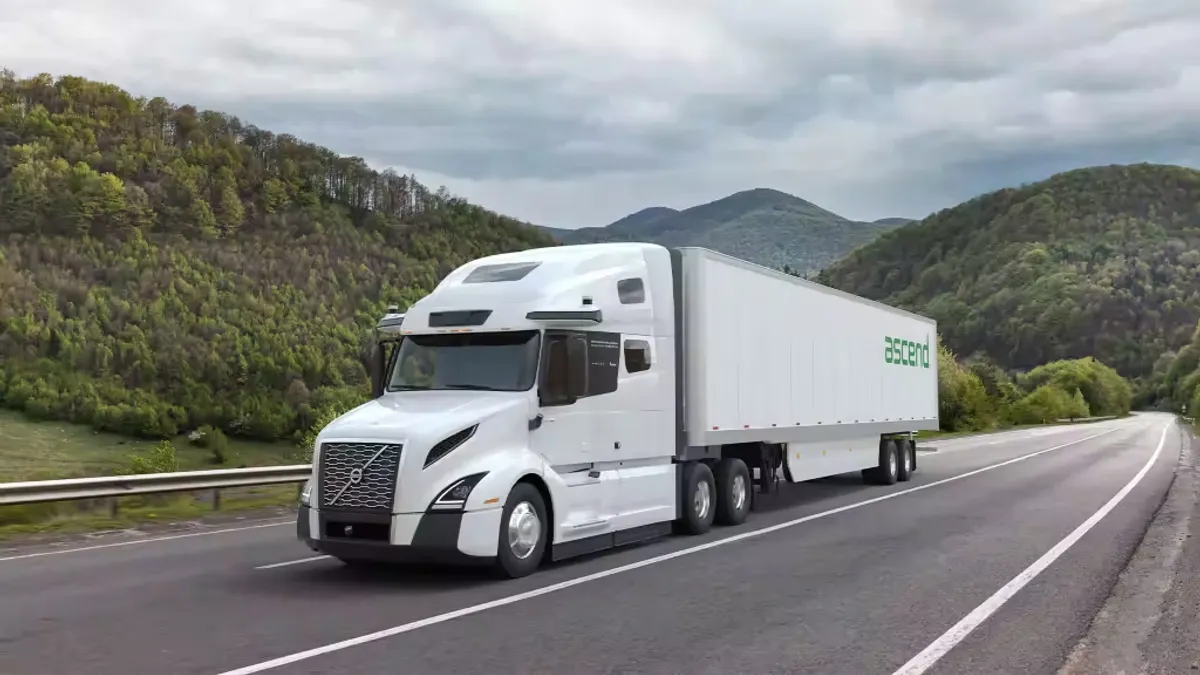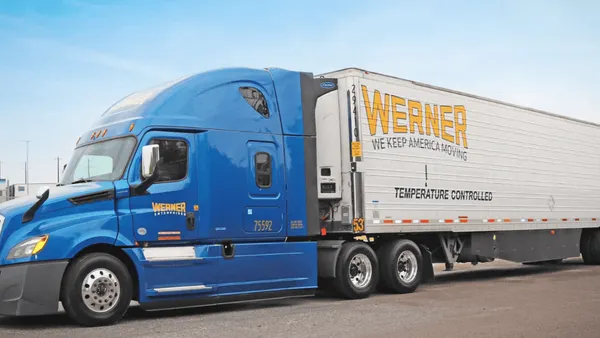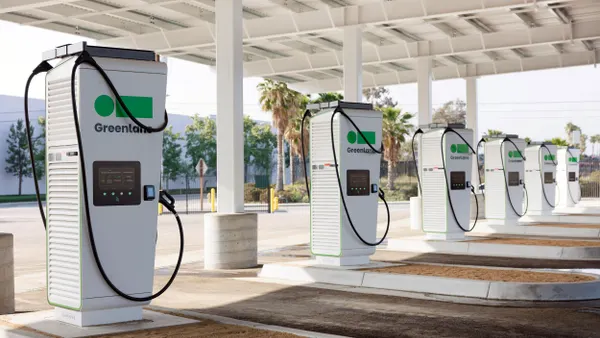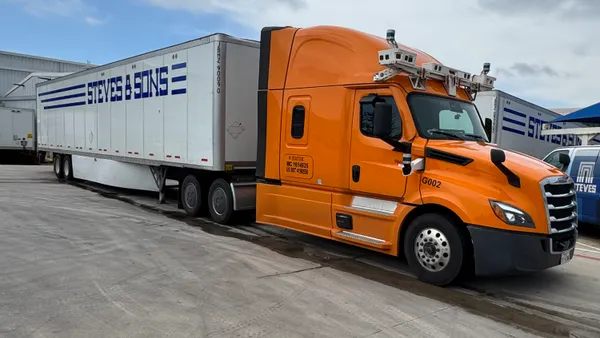Dive Brief:
- Volvo Autonomous Solutions, which seeks to provide driverless tech services, has recruited its first carrier, dry van TL provider Ascend, to its reservation program, Volvo announced last month.
- Volvo is building an autonomous freight network that will initially run in Texas from Houston to Dallas and Dallas-Fort Worth to El Paso. Its reservation program is for shippers, carriers, logistics providers and brokers.
- “By signing up, Ascend will have secured position to purchase autonomous freight capacity once it becomes available,” Volvo said. The collaboration also includes a technical and operational pre-study work to onboard the carrier to the network.
Dive Insight:
Advocates of the tech note autonomous trucks could serve long-haul freight while drivers shift to shorter distances.
Volvo’s service, for instance, could be used for additional capacity, keeping drivers closer to home or improving road safety, according to Nils Jaeger, president of Volvo Autonomous Solutions.
Accordingly, the initiative in Texas is slated to shift how drivers work, among other changes. Joining Volvo’s AV network will support Ascend’s efforts to transform the regional TL sector by leveraging technology, building density and offering driver-friendly routes and policies, Ascend Dedicated President Scott Stowers said in another news release.
Under Volvo’s model, Ascend Dedicated will haul customer loads to hubs in Dallas and Houston, where the goods will be transferred to autonomous trucks to complete a long-haul run, said Andy McGowan, a spokesperson for the carrier. Ascend drivers will then pick up the goods at another hub for delivery to their destination.
Other partnerships with the Volvo Group company include Uber Freight and DHL Supply Chain Solutions — both launched last year — and Aurora, which unveiled a driverless VNL model prototype with Volvo Autonomous Solutions in 2021.
Volvo isn’t alone in terms of OEMs sizing up autonomous truck potential. Navistar and TuSimple had an arrangement to produce fully autonomous semi-trucks by 2024 but ended the move last December. The manufacturer noted it wasn’t giving up on the technology, though.
Meanwhile, Daimler Trucks acquired a majority stake in Torc Robotics in 2019 to develop self-driving trucks.
“Bringing a safe Level 4 autonomous truck to market is by no means a simple task,” Torc CEO Peter Vaughan Schmidt said last October. “Over the past three years, we have benefited from the strong collaboration with Daimler Truck, bringing us significantly closer to our goal of developing a highly optimized self-driving truck that will meet the fleets’ needs for cost, safety, and performance.”












